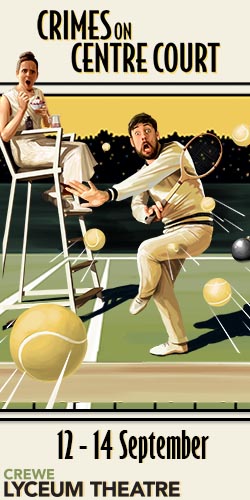
Nantwich Town returned to second in the Evo-Stik Premier Division after a 3-0 home win over Coalville Town.
The Dabbers eased to victory thanks to goals from John Johnston, Sean Cooke and Tom Peers.
Phil Parkinson made three changes from the side that started against Skelmersdale United.
Matt Bell returned while Joe Mwasile and Peers were recalled.
Steve Jones and Ryan Brooke dropped to the bench, while Josh Hancock returned to the squad after six weeks out from a hernia operation.
Both teams struggled to find rhythm early on.
Bell had the first shot on eight minutes as he fired over from outside the box.
Peers should have scored on 11 minutes as a corner dropped nicely to him a few yards out.
He could only scoop over, but the offside flag was up.
At the other end, Nathan Watson beat the Dabbers defence and fired wide from a tight angle with Coalville’s first chance.
John Johnston’s long range shot tested Matt Coton, but it was a comfortable save.
Neither team could get control, but Mwasile was proving tough to handle.
Watson had the visitors’ second chance as he headed on goal, but Gyollai gathered the ball.
The Dabbers turned up the pressure on the half-hour mark.
Johnston had a shot blocked and Mwasile cut inside and fired wide.
Coalville remained a threat and almost went in front after pinball in the Dabbers box saw Andy White scrambling clear the danger.
Moments later Nantwich were ahead.

A long ball over the top caused confusion and Johnston beat two covering Coalville defenders and fired past Coton for 1-0.
The game had needed a goal and the Dabbers were lifted by the lead.
Coalville had to commit two fouls in quick succession, as Massiah McDonald barged over Cooke and then Lee Torr fouled Mwasile.
From the free kick, the ball hit the Coalville wall and the referee spotted a handball by Liam Walshe.
And it was second time lucky for Cooke, who saw his free kick deflect past Coton to give the Dabbers a second goal.
Mwasile and Bell both had chances before half-time as the Dabbers went in two goals to the good.

In the second half, Coalville started brightly but couldn’t fashion any chances.
Ibou Touray then burst into the Coalville box but his cross couldn’t find a team mate.
The next opportunity sealed the three points.
A ball looped into the area and Peers reacted quickest.
He got the ball under control, beat his man and slotted past Coton to put the Dabbers in command.
Coalville didn’t give up, as Watson fired wide and Harrison cleared away a dangerous cross before sub Anton Brown headed wide.

Rory Coleman cut inside and dragged a shot wide as the game ticked down.
Ryan Brooke replaced Peers and Josh Hancock came on for Mwasile.
Hancock had a couple of chances in the closing minutes as Nantwich didn’t sit back.
The visitors had two half chances as Edilson Antonio skewed well wide and Coleman put a close range free kick straight at Gyollai.
An injury time foul by Wayne Riley on Brown sparked pushing and shoving between players, with Riley going into the book.
From a Coalville corner, Gyollai claimed the ball and got caught in a tangle with Danny Jenno, and tempers flared again.
Jenno was booked and the referee blew for full-time, giving the Dabbers a 20th league win and strengthening their play-off spot place.
Nantwich Town: Dan Gyollai, Andy White, Ibou Touray, Joel Stair, Ben Harrison, Sam Hall(c), Wayne Riley, 70), John Johnston, Matt Bell, Tom Peers(Ryan Brooke, 63), Sean Cooke, Joe Mwasile(Josh Hancock, 66). Unused subs: Steve Jones, Osebi Abadaki
(pics by Jonathan White)






















Recent Comments